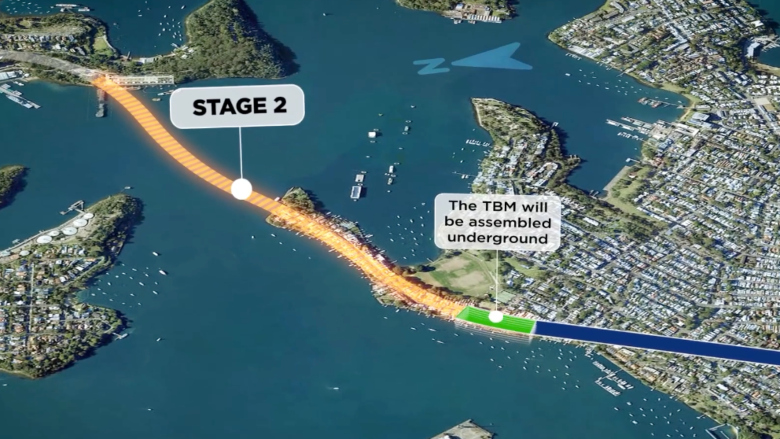Contractor Acciona Construction Australia has selected a joint venture of AECOM and Aurecon to perform detailed design work on its project to build a tunnel under Sydney Harbour, AECOM announced May 10.
Officials in Australia’s New South Wales state awarded a contract worth the equivalent of about $2.9 billion to Spain-based Acciona’s Australia business unit last December for design and construction of Stage 2 of the Western Harbour Tunnel project. The 4-mile tunnel would provide a bypass of the Sydney central business district, with the goal of cutting traffic congestion and travel times. The tunnel would include three lanes in each direction.
Acciona’s section includes the northern end of the tunnel project, including the approximately 1-mile crossing under the harbor itself. Major work on Stage 2 is slated to start later this year and last about five years.

Stage 2 of the Western Harbour Tunnel project includes boring the northern end of the tunnel and fit-out of the full tunnel.
Image courtesy of New South Wales Government
The designers say they will deliver a design that avoids dredging for an immersed tube tunnel as had originally been planned by instead using tunnel boring machines. They aim to minimize any impacts on the marine environment, as well as any disruption to commercial and recreational harbor users.
“The improved design and construction method is an excellent example of industry collaboration and is expected to deliver significant reductions to the amount of steel and concrete required, as well as other environmental benefits, compared to the original reference design,” Richard Barrett, head of AECOM’s Australia and New Zealand business, said in a statement.
Using the two TBMs will eliminate the need for two planned surface construction sites and for temporary cofferdams, according to NSW officials.
Tunneling for the 1.1-mile Stage 1 segment, led by John Holland CPB Contractors, began last June. The work includes excavation but no tunnel fit-out, which will be included in Stage 2. Stage 1 work is expected to continue through next year and into 2024.






Post a comment to this article
Report Abusive Comment